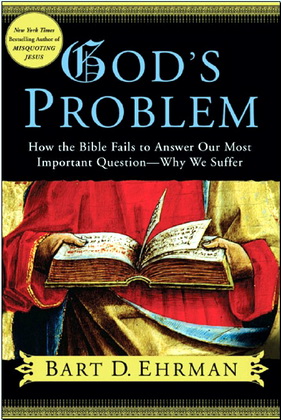
Cambridge Companions - Early Modern Philosophers and Their Works 1500-1800
Descartes is perhaps the most widely studied of all the great philosophers. Students in countless introductory courses find that their imagination is captured by the lonely quest for knowledge described in Descartes’ masterpiece, the Meditations on First Philosophy. The radical critique of preconceived opinions or prejudices (praejudicia) which begins that work seems to symbolize the very essence of philosophical inquiry. And the task of finding secure foundations for human knowledge, a reliable basis for science and ethics, encapsulates, for many, what makes philosophy worth doing. The excitement felt on first encountering Cartesian philosophy does not diminish as one delves deeper. Descartes’ inquiries into the nature and structure of the material universe, his views on human freedom and the existence of God, and his account of the human condition and the relationship between mind and matter, all exert a powerful intellectual pull on us even today. And even when the details of the system are forgotten, Descartes’ starting point in the quest for truth, his Cogito ergo sum ("I am thinking, therefore I exist") remains the most celebrated philosophical dictum of all time.
But despite the fame of Descartes’ system, there is much about the Cartesian project that, from a twentieth-century standpoint, seems radically misguided. Many philosophers working today, whether in the theory of knowledge or the philosophy of mind, would probably define their position as systematically anti-Cartesian. The reasons for this go far beyond the fact that developments in physical science have rendered many of Descartes’ scientific results obsolete. It is of course true that his theories of cosmology and astronomy are now little more than historical curiosities; his naively mechanistic account of gravity, for example, has long since been discarded by working scientists. But the philosophical worries about the structure of the Cartesian account of knowledge are of a deeper nature. Some of the worries began to be voiced less than a century after Descartes’ death, and one central problem which seems to beset his ambitious program for reaching the truth was aptly summarized by Hume: much inculcated by Des Cartes as a sovereign preservative against error [is a method proceeding] by a chain of reasoning, deduced from some original principle which cannot possibly be fallacious … But neither is there any such original principle, which has a prerogative above all others, … [nor] if there were, could we advance a step beyond it, but by the use of those very faculties of which we are already supposed to be diffident.
The Cambridge Companion to Descartes
Edited by John Cottingham, 2009
- 1. Descartes’ life and the development of his philosophy. GENEVIÈVE RODIS-LEWIS
- 2. Descartes and scholasticism: the intellectual background to Descartes’ thought. ROGER ARIEW
- 3. The nature of abstract reasoning: philosophical aspects of Descartes’ work in algebra. STEPHEN GAUKROGER
- 4. Cartesian metaphysics and the role of the simple natures. JEAN-LUC MARION
- 5. The Cogito and its importance. PETER MARKIE
- 6. The idea of God and the proofs of his existence. JEAN-MARIE BEYSSADE
- 7. The Cartesian circle. LOUIS E. LOEB
- 8. Cartesian dualism: theology, metaphysics, and science. JOHN COTTINGHAM
- 9. Descartes’ philosophy of science and the scientific revolution. DESMOND CLARKE
- 10. Descartes’ physics. DANIEL GARBER
- 11. Descartes’ physiology and its relation to his psychology. GARY HATFIELD
- 12. Descartes on thinking with the body. AMÉLIE OKSENBERG RORTY
- 13. The reception of Descartes’ philosophy. NICHOLAS JOLLEY
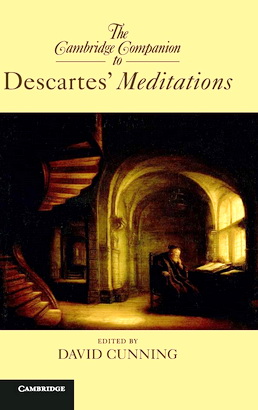
The Cambridge Companion to Descartes' Meditations
Edited by David Cunning, 2014
- Introduction. David Cunning
- 1. The methodology of the Meditations: tradition and innovation. Christia Mercer
- 2. The First Meditation: skeptical doubt and certainty. Charles Larmore
- 3. The First Meditation: divine omnipotence, necessary truths, and the possibility of radical deception. David Cunning
- 4. The Second Meditation and the nature of the human mind. Lilli Alanen
- 5. The Second Meditation: unimaginable bodies and insensible minds. Katherine J. Morris
- 6. The Third Meditation: causal arguments for God’s existence. Lawrence Nolan
- 7. The Third Meditation on objective being: representation and intentional content. Amy Schmitter
- 8. The Fourth Meditation: Descartes’ theodicy avant la letter. Thomas M. Lennon
- 9. The Fourth Meditation: Descartes and libertarian freedom. Cecilia Wee
- 10. The Fifth Meditation: Descartes’ doctrine of true and immutable natures. Tad M. Schmaltz
- 11. The Fifth Meditation: externality and true and immutable natures. Olli Koistinen
- 12. The Sixth Meditation: Descartes and the embodied self. Deborah Brown
- 13. Sensory perception of bodies: Meditation 6.5. Alison Simmons
- 14. Descartes’ dualism and its relation to Spinoza’s metaphysics. Alan Nelson
- 15. The Meditations and Descartes’ considered conception of God. Annette Baier
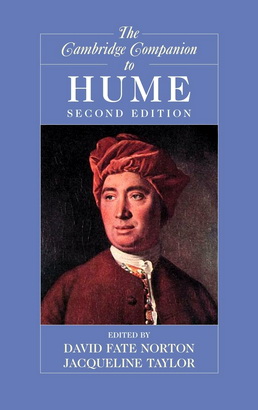
The Cambridge Companion to Hume
Edited by David Fate Norton and Jacqueline Taylor, 2009
- 1. An Introduction to Hume's Thought. DAVID FATE NORTON
- 2. Hume's New Science of the Mind. JOHN BIRO
- 3. Hume and the Mechanics of Mind: Impressions, Ideas, and Association. DAVID OWEN
- 4. Hume's Theory of Space and Time in Its Skeptical Context. DONALD L. M. BAXTER
- 5. Hume on Causation. MARTIN BELL
- 6. Hume and the Problem of Personal Identity. JANE L. MCINTYRE
- 7. Hume's Skepticism. ROBERT J. FOGELIN
- 8. Hume's Moral Psychology. TERENCE PENELHUM
- 9. The Foundations of Morality in Hume's Treatise. DAVID FATE NORTON
- 10. Hume's Later Moral Philosophy. JACQUELINE TAYLOR
- 11. The Structure of Hume's Political Theory. KNUD HAAKONSSEN
- 12. Hume's Principles of Political Economy. ANDREW S. SKINNER
- 13. Hume on the Arts and “The Standard of Taste”: Texts and Contexts. PETER JONES
- 14. David Hume: “The Historian”. DAVID WOOTTON
- 15. Hume on Religion. J. C. A. GASKIN
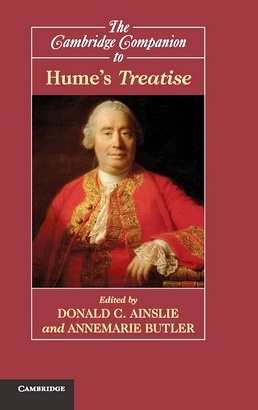
The Cambridge Companion to Hume's Treatise
Edited by Annemarie Butler and Donald C. Ainslie, 2015
- 1. Hume’s Early Biography and A Treatise of Human Nature. Annemarie Butler
- 2. From Impressions to Justice and the Virtues: The Structure of Hume’s Treatise. Amélie Oksenberg Rorty
- 3. The Ideas of Space and Time and Spatial and Temporal Ideas in Treatise 1.2. Lorne Falkenstein
- 4. Hume’s Theory of Causation: Inference, Judgment, and the Causal Sense. Don Garrett
- 5. Scepticism with Regard to Reason. David Owen
- 6. Hume on Scepticism and the Senses. Kenneth P. Winkler
- 7. The Problem of Believing in Yourself: Hume’s Doubts about Personal Identity. Annemarie Butler
- 8. Sympathy, Self, and Others. Jacqueline Taylor
- 9. The Indirect Passions, Myself, and Others. Terence Penelhum
- 10. “Hume’s Lengthy Digression”: Free Will in the Treatise. Paul Russell
- 11. Hume on Reason and Passion. Nicholas L. Sturgeon
- 12. Hume and Moral Motivation. Donald C. Ainslie
- 13. Hume’s Justice. Tito Magri
- 14. What’s So “Natural” about Hume’s Natural Virtues? Kate Abramson
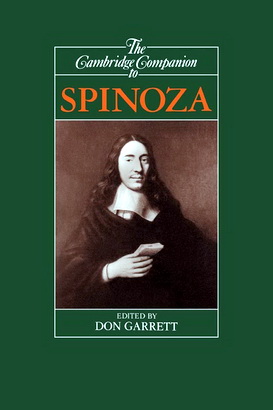
The Cambridge Companion to Spinoza
Edited by Don Garr, 1997
- Introduction. DON GARRETT
- 1. Spinoza’s life and works. W. N. A. KLEVER
- 2. Spinoza’s metaphysics. JONATHAN BENNETT
- 3. Spinoza’s theory of knowledge. MARGARET D. WILSON
- 4. Spinoza’s natural science and methodology. ALAN GABBEY
- 5. Spinoza’s metaphysical psychology. MICHAEL DELLA ROCCA
- 6. Spinoza’s ethical theory. DON GARRETT
- 7. Kissinger, Spinoza, and Genghis Khan. EDWIN CURLEY
- 8. Spinoza’s theology. ALAN DONAGAN
- 9. Spinoza and Bible scholarship. RICHARD H. POPKIN
- 10. Spinoza’s reception and influence (translated by Roger Ariew). PIERRE-FRANÇOIS MOREAU
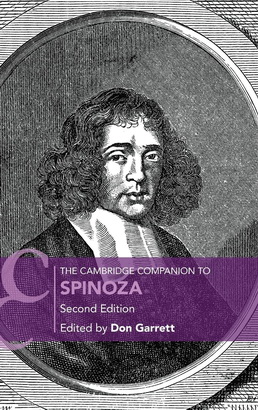
The Cambridge Companion to Spinoza
2nd Edition, edited by Don Garrett, 2022
- Introduction. DON GARRETT
- 1. Spinoza ’ s Life. PIET STEENBAKKERS
- 2. Spinoza ’ s Metaphysics of Substance. YITZHAK Y. MELAMED
- 3. Spinoza on the Metaphysics of Thought and Extension. MARTIN LIN
- 4. Spinoza ’ s Epistemology. URSULA RENZ
- 5. Spinoza on Natural Science and Methodology. ALAN GABBEY
- 6. Spinoza ’ s Metaphysical Psychology. MICHAEL DELLA ROCCA
- 7. Spinoza ’ s Ethical Theory. DON GARRETT
- 8. Kissinger, Spinoza, and Genghis Khan. EDWIN CURLEY
- 9. Spinoza ’ s Philosophical Religion. SUSAN JAMES
- 10. Spinoza ’ s Contribution to Biblical Scholarship. EDWIN CURLEY
- 11. Spinoza ’ s Reception. PIERRE-FRANÇOIS MOREAU AND MOGENS LÆRKE
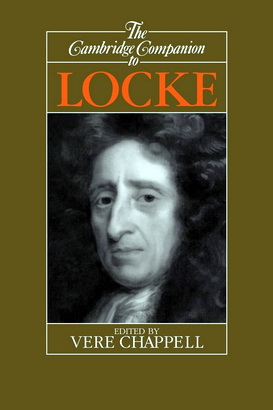
The Cambridge Companion to Locke
Edited by Vere Chappell, 1999
- Introduction. VERE CHAPPELL
- 1. Locke's life and times. J. R. MILTON
- 2. Locke's theory of ideas. VERE CHAPPELL
- 3. Locke's philosophy of body. EDWIN McCANN
- 4. Locke's philosophy of mind. JONATHAN BENNETT
- 5. Locke's philosophy of language. PAUL GUYER
- 6. Locke's theory of knowledge. ROGER WOOLHOUSE
- 7. Locke's philosophy of religion. NICHOLAS WOLTERSTORFF
- 8. Locke's moral philosophy. J. B. SCHNEEWIND
- 9. Locke's political philosophy. RICHARD ASHCRAFT
- 10. Locke's influence. HANS AARSLEFF
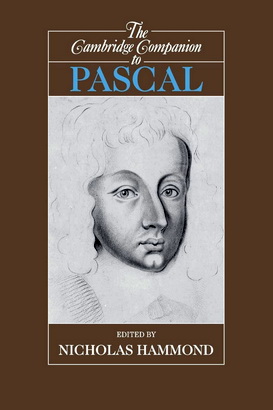
The Cambridge Companion to Pascal
Edited by Nicholas Hammond, 2003
- Introduction. Nicholas Hammond
- 1 - Pascal’s life and times. Ben Rogers
- 2 - Pascal’s reading and the inheritance of Montaigne and Descartes. Henry Phillips
- 3 - Pascal’s work on probability. A. W. F. Edwards
- 4 - Pascal and decision theory. Jon Elster
- 5 - Pascal’s physics. Daniel C. Fouke
- 6 - Pascal’s philosophy of science. Desmond M. Clarke
- 7 - Pascal’s theory of knowledge. Jean Khalfa
- 8 - Grace and religious belief in Pascal. Michael Moriarty
- 9 - Pascal and holy writ. David Wetsel
- 10 - Pascal’s Lettres provincials. Richard Parish
- 11 - Pascal and the social world. Hélène Bouchilloux
- 12 - Pascal and philosophical method. Pierre Force
- 13 - Pascal’s Pensées and the art of persuasion. Nicholas Hammond
- 14 - The reception of Pascal’s Pensées in the seventeenth and eighteenth centuries. Antony McKenna
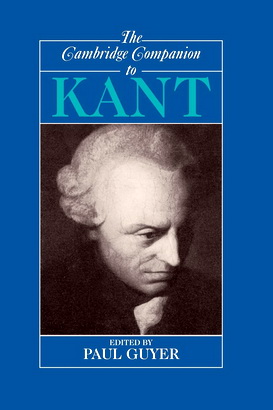
The Cambridge Companion to Kant
Edited by Paul Guyer, 1999
- Introduction: The starry heavens and the moral law. PAUL GUYER
- 1. Kant’s intellectual development: 1746–1781. FREDERICK C. BEISER
- 2. The Transcendental Aesthetic. CHARLES PARSONS
- 3. Functions of thought and the synthesis of intuitions. J. MICHAEL YOUNG
- 4. The transcendental deduction of the categories. PAUL GUYER
- 5. Causal laws and the foundations of natural science. MICHAEL FRIEDMAN
- 6. Empirical, rational, and transcendental psychology: Psychology as science and as philosophy. GARY HATFIELD
- 7. Reason and the practice of science. THOMAS E. WARTENBERG
- 8. The critique of metaphysics: Kant and traditional ontology. KARL AMERIKS
- 9. Vindicating reason. ONORA O’NEILL
- 10. Autonomy, obligation, and virtue: An overview of Kant’s moral philosophy. J. B. SCHNEEWIND
- 11. Politics, freedom, and order: Kant’s political philosophy. WOLFGANG KERSTING
- 12. Taste, sublimity, and genius: The aesthetics of nature and art. EVA SCHAPER
- 13. Rational theology, moral faith, and religion. ALLEN W. WOOD
- 14. The first twenty years of critique: The Spinoza connection. GEORGE DI GIOVANNI
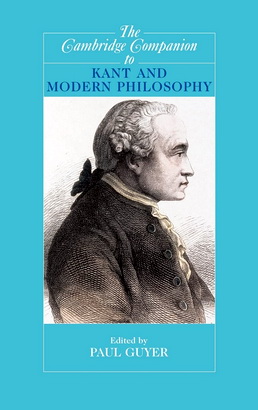
The Cambridge Companion to Kant and Modern Philosophy
Edited by Paul Guyer, 2006
- Introduction: The starry heavens and the moral law. Paul Guyer
- 1. “A Priori”. Philip Kitcher
- 2. Kant on the perception of space (and time). Gary Hatfield
- 3. Kant’s philosophy of mathematics. Lisa Shabel
- 4. Kant on a priori concepts: The metaphysical deduction of the categories. Béatrice Longuenesse
- 5. Kant’s philosophy of the cognitive mind. Patricia Kitcher
- 6. Kant’s proofs of substance and causation. Arthur Melnick
- 7. Kant and transcendental arguments. Ralph C. S. Walker
- 8. The critique of metaphysics: The structure and fate of Kant’s dialectic. Karl Ameriks
- 9. Philosophy of natural science. Michael Friedman
- 10. The supreme principle of morality. Allen W. Wood
- 11. Kant on freedom of the will. Henry E. Allison
- 12. Mine and thine? The Kantian state. Robert B. Pippin
- 13. Kant on sex and marriage right. Jane Kneller
- 14. Kant’s theory of peace. Pauline Kleingeld
- 15. Kant’s conception of virtue. Lara Denis
- 16. Kant’s ambitions in the third Critique. Paul Guyer
- 17. Moral faith and the highest good. Frederick C. Beiser
- 18. Kant’s critical philosophy and its reception – the first five years (1781–1786). Manfred Kuehn
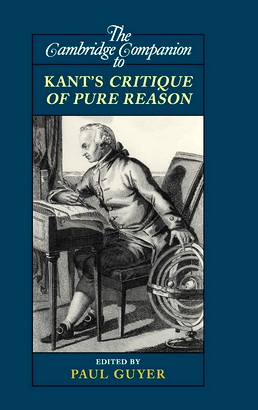
The Cambridge Companion to Kant’s Critique of Pure Reason
Edited by Paul Guyer, 2010
- Introduction. PAUL GUYER
Part I. The Background to the Critique
- 1. Kant’s Copernican Turn and the Rationalist Tradition. DESMOND HOGAN
- 2. Kant, the Empiricists, and the Enterprise of Deduction. KENNETH P. WINKLER
Part II. The Arguments of the Critique
- 3. The Introduction to the Critique: Framing the Question. R. LANIER ANDERSON
- 4. The Transcendental Aesthetic. LISA SHABEL
- 5. The Deduction of the Categories: The Metaphysical and Transcendental Deductions. PAUL GUYER
- 6. The System of Principles. ERIC WATKINS
- 7. The Refutation of Idealism and the Distinction between Phenomena and Noumena. DINA EMUNDTS
- 8. The Ideas of Pure Reason. MICHAEL ROHLF
- 9. The Paralogisms of Pure Reason. JULIAN WUERTH
- 10. The Antinomies of Pure Reason. ALLEN W. WOOD
- 11. The Ideal of Pure Reason. MICHELLE GRIER
- 12. The Appendix to the Dialectic and the Canon of Pure Reason: The Positive Role of Reason. FREDERICK RAUSCHER
- 13. The Transcendental Doctrine of Method. A. W. MOORE
Part III. The Impact of the Critique
- 14. The Reception of the Critique of Pure Reason in German Idealism. ROLF-PETER HORSTMANN
- 15. The “Transcendental Method”: On the Reception of the Critique of Pure Reason in Neo-Kantianism. KONSTANTIN POLLOK
- 16. The Critique of Pure Reason and Continental Philosophy: Heidegger’s Interpretation of Transcendental Imagination. DANIEL DAHLSTROM
- 17. Kant’s Critique of Pure Reason and Analytic Philosophy. KENNETH R. WESTPHAL

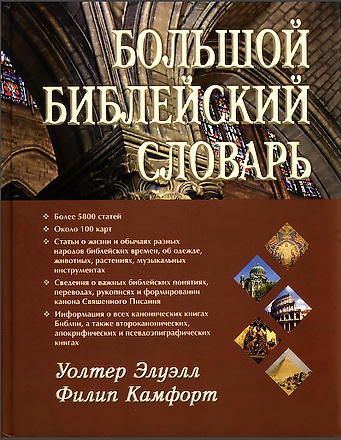
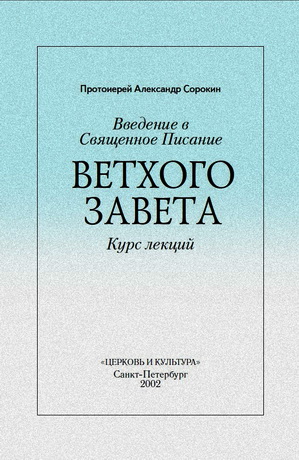
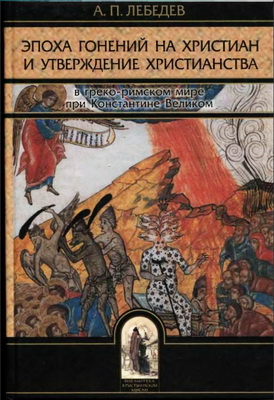
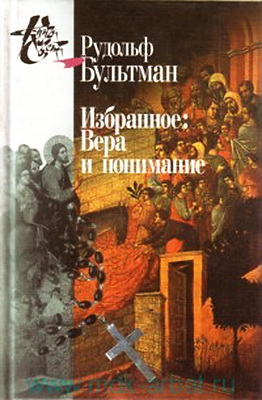
Комментарии (1 комментарий)
Новогодние подарки, спасибо!!!